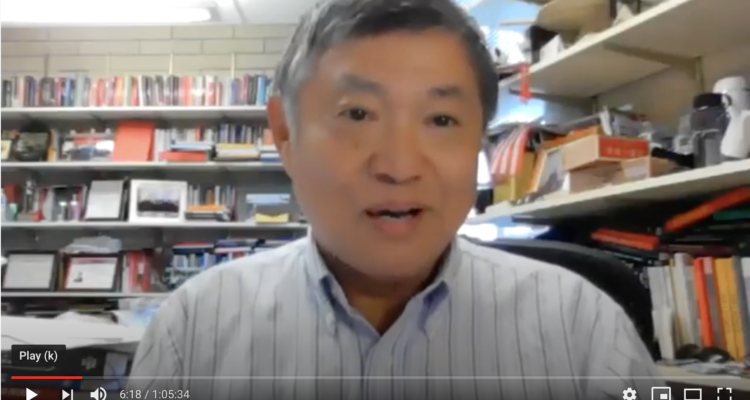On Thursday, Aug. 13 Professor Suisheng “Sam” Zhao, Sam Zhao, Director of the Center for China-US Cooperation at University of Denver, joined the Vail Symposium to provide a current picture of China. Here are the key takeaways, compiled by Program Manager, Claire Noble.
- Professor Zhao began his discussion on the future of U.S. – Sino relations acknowledging that the grand bargain had collapsed. Despite opening U.S. markets to China, investment in China and transfer of technology to China–China had failed to emerge as a responsible stakeholder and instead has emerged as a challenger to the U.S.
Moreover, China now views the U.S. as an impediment to their aspirations that is actively blocking China from assuming peer-nation status. - Zhao noted that China’s foreign policy in the past was somewhat modest. However, in the last decade China’s foreign policy has grown more muscular and evolved into big-power diplomacy with intensified economic, military and security dimensions.
- China used to be a continental army, but is now working towards a modern, maritime power–especially in the western Pacific.
- Xi Jinping’s vision of the “China Dream” or Chinese model is one of a strong, centralized authoritarian government. This is a model anathema to liberal, western democracies.
- Trump administration figures have been vocal and damning with respect to China going so far as to claim that China is an enemy and a threat to our way of life. While Professor Zhao initially felt the word “rivalry” was too strong to describe the U.S. – Sino relationship, he now thinks it is not strong enough. He claims that China started the new Cold War, but it was the U.S. that openly declared it.
- When asked by moderator Greg Dobbs if China’s economy would succeed, Zhao said that so far it has. In terms of purchase parity it has overtaken the U.S. However, in terms of per capita income, China still lags the U.S. by a considerable amount.
- China also lack allies. Russia can hardly be considered an ally–neither country trusts the other. China does have many enemies.
- Regarding the pandemic, Zhao referred to it as a non-traditional security threat. Such instances are not typically zero sum, but China and the U.S. have made it so in three areas: Prestige–who develops a vaccine first; Economic–whoever develops a vaccine first repairs their economy first; and Superiority–which system, authoritarian or democratic, results in a vaccine. The two countries have competed rather than cooperated against a shared, non-traditional security threat.
- When asked how a change in administration might impact the U.S. – Sino relationship, Zhao felt tensions would persist regardless of which party wins the White House. However, he did acknowledge that a Biden presidency would be viewed as more rational and predictable.


